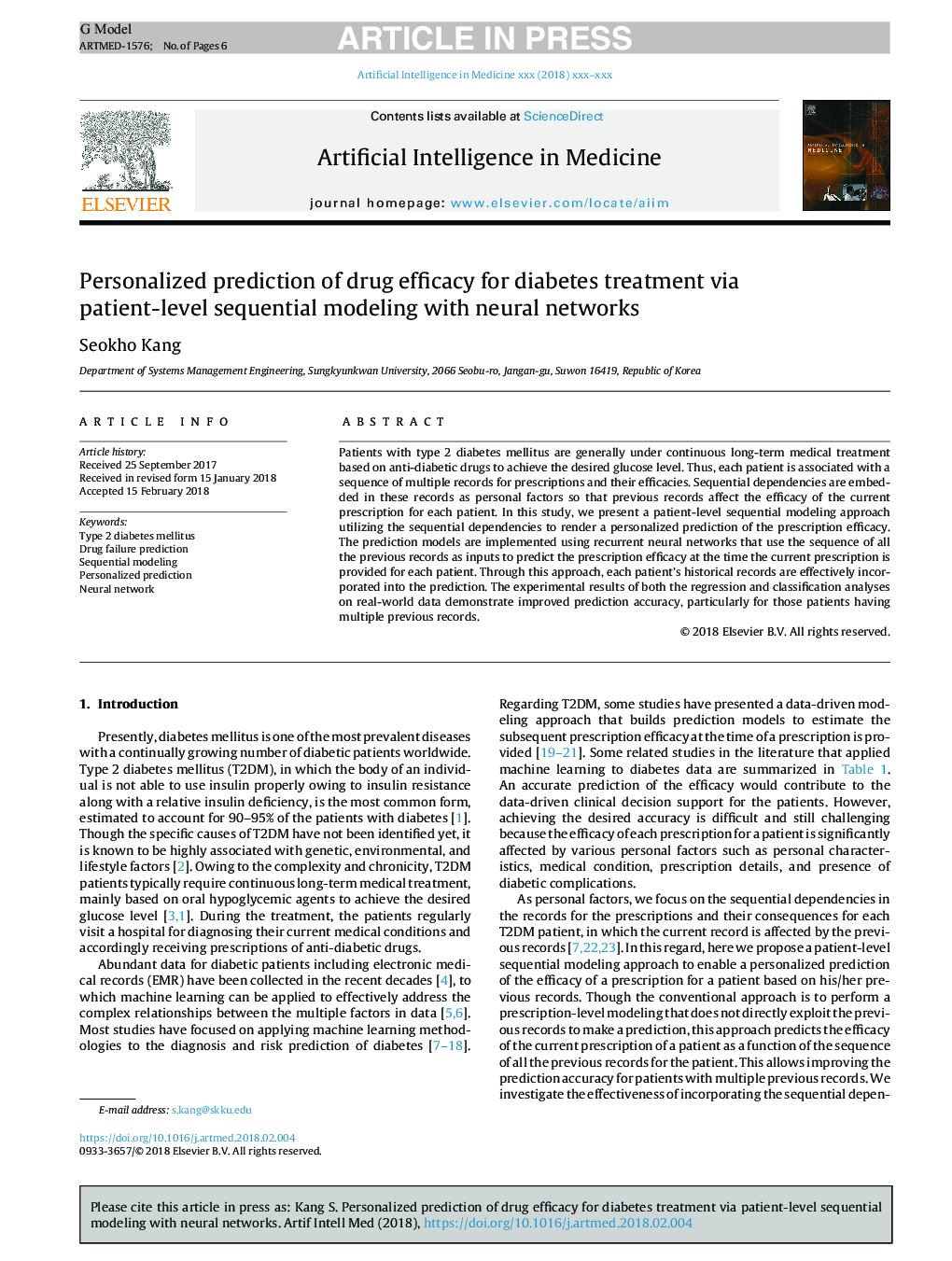| Article ID | Journal | Published Year | Pages | File Type |
|---|---|---|---|---|
| 6853322 | Artificial Intelligence in Medicine | 2018 | 6 Pages |
Abstract
Patients with type 2 diabetes mellitus are generally under continuous long-term medical treatment based on anti-diabetic drugs to achieve the desired glucose level. Thus, each patient is associated with a sequence of multiple records for prescriptions and their efficacies. Sequential dependencies are embedded in these records as personal factors so that previous records affect the efficacy of the current prescription for each patient. In this study, we present a patient-level sequential modeling approach utilizing the sequential dependencies to render a personalized prediction of the prescription efficacy. The prediction models are implemented using recurrent neural networks that use the sequence of all the previous records as inputs to predict the prescription efficacy at the time the current prescription is provided for each patient. Through this approach, each patient's historical records are effectively incorporated into the prediction. The experimental results of both the regression and classification analyses on real-world data demonstrate improved prediction accuracy, particularly for those patients having multiple previous records.
Related Topics
Physical Sciences and Engineering
Computer Science
Artificial Intelligence
Authors
Seokho Kang,
